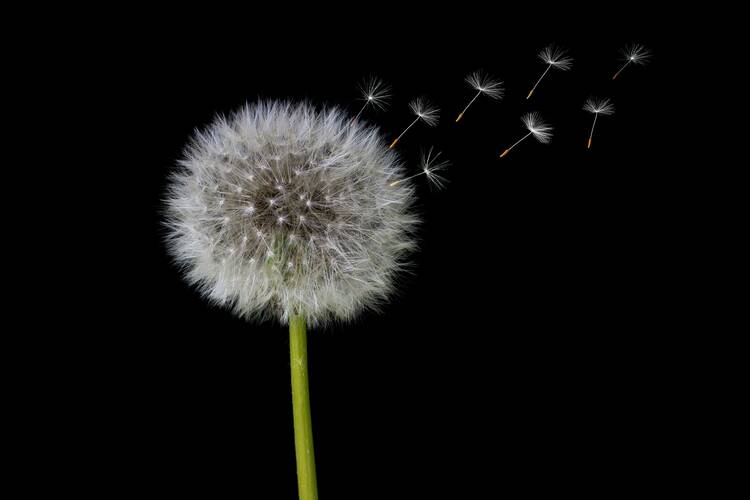Responding to the presence of God in the smallest of seeds
From beginning to end, the Bible is filled with images of flourishing trees that symbolize the kingdom of God. Last Sunday, for example, we were reminded of the Tree of the Knowledge of Good and Evil, the fruit of which the first pair of humans consumed prematurely. Anyone who turns to the last chapter of the last book of the Bible, will find there in Rv 22:2-19 references to the Tree of Life that was first mentioned in Genesis. There are many more examples like this. For instance, the first psalm begins with a comparison between a person of wisdom and a “tree planted near streams of water, that yields its fruit in season” (Ps 1:3). Trees are everywhere.
The just one shall flourish like the palm tree, like a cedar of Lebanon he shall grow. (Ps 92:13)
Who reminds you of a great cedar in your faith life right now?
Where are the seeds of faith evident in your community?
Can you identify something growing silently in your life right now?
This Sunday’s readings use images of conifers and seedlings as symbols for growth and replanting, which is another way to illustrate Scripture’s call for transformation. In this Sunday’s first reading, for example, the prophet Ezekiel compares Jehoiachin of Judah to the old growth of a glorious past. Jehoiachin was taken to Babylon in exile not long after his reign began in 597 BCE. The Lord asks for a time of transformation after the fall of Jehoiachin, not just with efforts at rebuilding Jerusalem and the Temple, but efforts to understand that God’s hand is behind the restoration. “I, too, will pluck from the crest of the cedar the highest branch. From the top a tender shoot I will break off and transplant on a high, lofty mountain” (Ez 17:22). Jerusalem has collapsed; there are now exiles like the prophet Ezekiel living far away from their ancestral home. Although the mighty rise and fall, the hand of the Lord remains of central importance. “Every tree of the field will know that I am the Lord. I bring low the high tree, lift high the lowly tree, wither up the green tree, and make the dry tree bloom” (Ez 17:24). There is a clear indication from Ezekiel that the power of God exists in the humble “low tree” that God replanted, and that the majestic “high tree” represented the failed human strength of Jehoiachin. This leader of Judah has fallen and Israel’s people are invited to new spiritual growth.
A quick online search describes the cedar as a majestic evergreen conifer that grows up to 35 meters (115 feet). The psalm for this Sunday reminds the faithful how a just person can potentially grow like the powerful trees available to the imagination of the writer. “The just one shall flourish like the palm tree, like a cedar of Lebanon he shall grow” (Ps 92:13). Those planted in the house of the Lord, says the psalm, will flourish in the courts of our God.
Throughout the scriptures, those near to God flourish and, through the integrity of their lives, embody divine wisdom among the human family. This spiritual sense of flourishing contrasts sharply with models of flourishing that are popular today that rely on accumulation of material goods.
Finally, in this Sunday’s Gospel, Jesus introduces the kingdom of God in a parable about the smallest of seeds. “It is like the mustard seed…the smallest of all the seeds on the earth” (Mk 4:31). The fact that Jesus uses the “smallest of seeds” to describe his kingdom brings all the majestic tree imagery from today down to a humble reality. The passage only obliquely emphasizes how great and grand the kingdom of God will become. In fact, the mustard seed does grow, “It springs up and becomes the largest of plants” (Mk 4:32). Understanding the way this kingdom grows, however, is beyond human capacity. All we can offer is our patience, our comfort with the unknown, and our ability to find the evidence of growth as it occurs.
To see the kingdom as it springs up around us, one can look for evidence of God at work in overlooked places and in the lives of the humblest people. In other words, look to the smallest of things. “Of its own accord the land yields fruit, first the blade, then the ear, then the full grain in the ear” (Mk 4:28). This Sunday’s Gospel passage invites the reader to reflect on these deeper realities. The kingdom is really about the smallest of things and it grows without our full capacity to understand. But we can trust the Lord that the harvest in its abundance will come.








